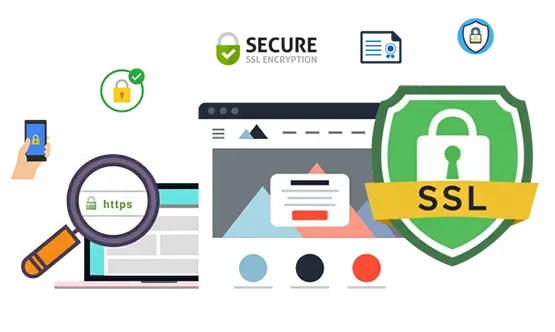SSL (Secure Sockets Layer) certificates are small data files that digitally bind a cryptographic key to an organization’s details. When installed on a web server, they activate the padlock and the https protocol (over port 443) and allow secure connections from a web server to a browser. Typically, SSL is used to secure credit card transactions, data transfer, and logins, and more recently is becoming the norm when securing browsing of social media sites.

SSL Certificates are important for several reasons
Data Encryption
SSL certificates encrypt data transferred between the web server and the user's browser, ensuring that sensitive information such as personal details, login credentials, and payment information is secure from interception by unauthorized parties.
Authentication
SSL certificates authenticate the identity of the website to the user's browser, assuring visitors that they are connecting to the legitimate website and not a malicious imposter.
Trust Indicators
Websites secured with SSL certificates display trust indicators such as a padlock icon in the browser's address bar and the use of "https://" in the URL, signaling to users that the connection is secure and their data is protected.
Compliance Requirements
SSL certificates are often required to comply with industry regulations and standards, especially for websites handling sensitive information such as credit card details or personal health information. Compliance with regulations like the Payment Card Industry Data Security Standard (PCI DSS) and the General Data Protection Regulation (GDPR) mandates the use of SSL encryption.
Improved SEO Ranking
Google considers HTTPS as a ranking factor in search results, meaning websites with SSL certificates may rank higher in search engine results pages (SERPs) compared to non-secure websites.
Browser Compatibility
SSL certificates ensure compatibility with modern web browsers, which may display security warnings or block access to websites that do not have SSL protection.
